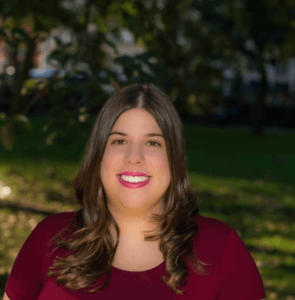Perspective has a huge impact on our mental state and how we feel. In turn, perspective motivates how we proceed and how we act. Perspective is defined as your point of view. It’s based on your beliefs, assumptions, and opinions. It does not necessarily line up with the reality. Being able to do a perspective shift can help you operate on a more effective level and in a way that is more in line with reality.
Oftentimes, people have general beliefs they hold about the world and how things work. The trouble is that life is circumstantial, making each situation unique and in need of an in the moment perspective. A general viewpoint may not be relevant to that specific circumstance. Therefore, a perspective shift may be needed in order to find the necessary flexibility in our thought processes.
COMMON GENERALIZED PERSPECTIVES
- Black and White thinking: these are the “always,” “never,” “every,” and “all the time” type of thoughts. It follows the all or nothing mindset.
- Regret orientation: the would’ve, could’ve, should’ve thinking. When you look at things in hindsight and get stuck on regret and beating yourself up for the “mistakes.” It keeps a past focus rather than a present mindset.
- Mind reading: the belief that we know for sure what someone else is thinking and feeling. Mind reading is informed by our insecurities and fears, not reality. This makes it very inaccurate, and can create more problems when you operate from mind reading.
- Catastrophizing: assuming the worst. This is when we build up the potential outcome and operate as if there will be a definite dire and disastrous consequence.
- Shoulds: judgement about what ought to be rather than the realities of the situation. Getting stuck in things needing to fit our preferences or what we believe should happen.
HOW TO HAVE A PERSPECTIVE SHIFT:
- Black and white thinking: notice when thoughts are extreme and when the “always,” “never” etc. type of words are popping up. Think about the opposite thought and what a middle ground would look like. Open your mind to a different viewpoint, even if you are struggling to believe the opposite or middle. The goal is to shift perspective to find the gray. Consider the present circumstance and what the reality is based off that not your general belief.
- Regret orientation: stop ruminating on the past. Shift perspective to the present moment and what you can do now to be effective. Past circumstances can be a learning experience, but make sure to limit how long you let your mind sit in the past. Then, when you are evaluating the past, look at what worked and what did not. Consider that evaluation to inform what can help in the present. Make sure this past analysis is brief and without judgement. Shift perspective into an objective lens.
- Mind reading: Look at the facts of what the person said and did. Catch when you are making assumptions. Think about what your typical mind reading thought is (for example many people’s go to is that someone is mad at them). Be extra mindful of mind reading when these typical thoughts arise.
- Catastrophizing: Ask yourself how likely is it that that will be the outcome? If so, what would that really mean, how bad would it be in reality? Remember that our worst case scenarios generally do not come true. The outcomes are rarely, if ever, as disastrous as we fear. Don’t discount your resiliency and keep in mind that you can handle it even if things do not turn out as you want.
- Shoulds: Shift perspective into what actual is. Look at the reality of the situation in a mindful way. Notice when “should” is popping up and eliminate those thoughts by asking “what is actually going on right now, what are the facts?”
Perspective shift is all about not letting your thoughts and emotions control you. It helps you become more open-minded and flexible in your beliefs. Getting stuck in rigid viewpoints inhibits your ability to operate under reality and actually do what will most benefit you. This can create a lot of negative emotions and stress. Get in the habit of challenging your thoughts and not taking them at face value. Doing so brings you a lot of freedom which will help you find more happiness and satisfaction.
Ready to start shifting your perspective to find more happiness and satisfaction? Download your free mentality for success workbook here

Alyssa Mairanz, LMHC, DBTC
Alyssa Mairanz provides counseling and therapy services for life transitions, relationship issues, self esteem, depression, anxiety, and DBT and Psychodynamic therapy in a NYC group practice in the Flatiron District near Madison Square Park. She also serves the Village, Chelsea, Union Square, the Financial District and the surrounding areas.
Empower Your Mind Therapy’s mission is to helps our clients build the life they want and find more happiness and satisfaction.



